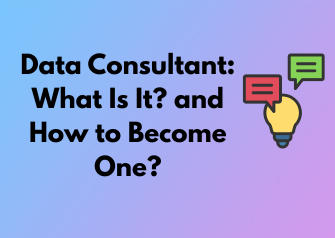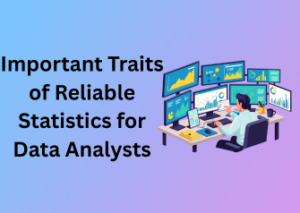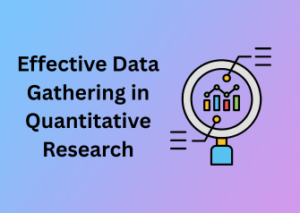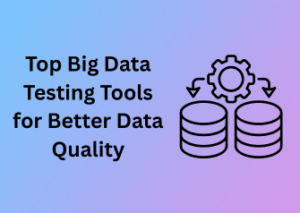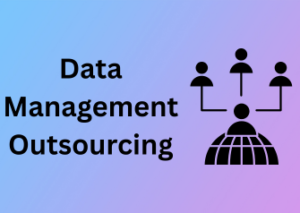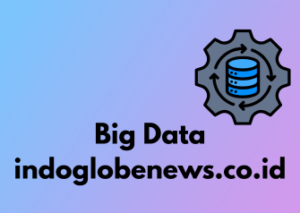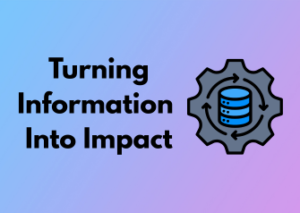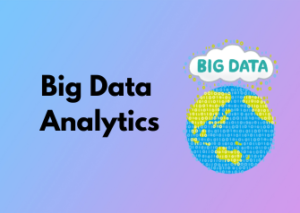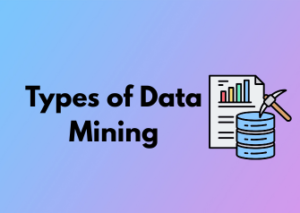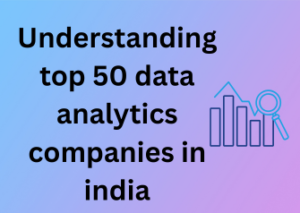Let’s dive into the world of data consulting—a role that’s become indispensable in today’s information-rich era. If you’ve ever wondered what a data consultant does, let me paint a picture. Imagine someone who takes all the messy, overwhelming data companies gather daily and works to transform it into something meaningful, actionable, and impactful. That’s the magic of a data consultant!
The core role of a data consultant revolves around helping businesses unlock the untapped power of their data. Businesses across industries collect mountains of data—sales numbers, customer habits, website traffic, and operational metrics, to name a few. However, without proper direction and expertise, this data could be like a treasure chest without a key. Here’s where the data consultant steps in.
What Does a Data Consultant Actually Do?
Essentially, they bridge the gap between raw data and its strategic use. A data consultant plays multiple roles:
- Strategic Advisor: They collaborate with business leaders to deeply understand their objectives and goals. What is the company trying to improve? What problem are they solving? Whether it’s pinpointing customer trends, reducing inefficiencies, or forecasting performance, they craft strategies based on insights derived from data.
- Data Interpreter: Let’s face it, data can be daunting for those without the technical know-how. Enter the data consultant, who simplifies complex datasets into meaningful insights—turning chaos into clarity.
- Problem-Solver: A major part of their job involves identifying bottlenecks or blind spots in processes, operations, or customer engagement—then presenting targeted, data-driven solutions.
- Bridge Builder: They often connect tech teams (such as data engineers and analysts) with business executives to ensure that everyone is on the same page. Communication is key!
Why Do Companies Need Data Consultants?
Few businesses today, regardless of size or sector, can afford to ignore their data. But the reality is that not all teams have the skills or tools to interpret the numbers. That’s where a data consultant can truly shine. They bring both expertise and neutrality to analyze a business’s performance objectively, offering clarity in decision-making.

Here’s a fun way to think of it: imagine a chef who has all the best ingredients in front of them (think raw data), but they don’t have a recipe or the right techniques to whip up a 5-star meal (hello, data consultant!). They provide the “recipe,” or actionable roadmap, to make the most out of the available resources.
Making Data Work for Businesses
Being effective as a data consultant requires breaking away from generic or cookie-cutter advice. They personalize recommendations for every client, understanding that each business has unique hurdles and opportunities. From digging into optimization opportunities within supply chains to helping fine-tune marketing campaigns with in-depth analytics, a data consultant ensures every recommendation is backed by evidence, not guesswork.
The core takeaway? A good data consultant doesn’t just report what the data says—they proactively guide companies toward smarter decisions that drive tangible growth.
Skills That Redefine Success in Data Consulting
When it comes to data consulting, success is built on more than just crunching numbers or analyzing data sets. This field requires a unique blend of technical know-how, problem-solving prowess, and exceptional communication skills. In this section, we’ll explore the essential skills that truly set a data consultant apart and how each one contributes to making a real impact in the world of data-driven decision-making.
1. Technical Mastery: The Core of Competence
At its foundation, data consulting demands a deep understanding of data-oriented tools and techniques. A successful data consultant should not only be able to work with massive data sets but also know how to extract meaningful insights from them. Key technical skills include:
- Data Analysis: Experience with interpreting data trends, forecasting, and identifying actionable metrics using tools like Python, R, or Excel.
- Database Management: Familiarity with SQL, NoSQL, and other database systems to retrieve, organize, and analyze data effectively.
- Data Visualization: The ability to create clear, elegant charts and graphs using software like Tableau, Power BI, or Matplotlib to convey complex insights simply.
- Cloud-Based Platforms: Understanding platforms like AWS, Google Cloud, or Azure is increasingly critical as businesses move to cloud environments.
Why it matters: Technical mastery gives you the tools you need to provide actionable solutions to even the most complex client challenges.
2. Problem-Solving: Thinking Beyond the Data
While it’s one thing to analyze data, it’s another to use it to solve real business challenges. A data consultant must approach every project with a problem-solving mindset. This means:
- Identifying the root cause of business issues through data exploration.
- Suggesting innovative, data-driven solutions tailored to the client’s industry and goals.
- Evaluating potential risks and recommending strategies to mitigate them.
Think of problem-solving as the bridge between technical work and real-world application—it turns raw data into meaningful, actionable outcomes.
3. Storytelling and Communication: Making Data Relatable
If you can’t explain your findings, then your insights lose their impact. Strong communication skills are every bit as important as technical expertise. This includes:
- Data Storytelling: Conveying complex insights as a compelling narrative with a clear beginning, middle, and actionable end.
- Client Communication: Listening to clients’ needs, presenting data findings in a straightforward way, and explaining technical concepts in layman’s terms.
- Collaboration: Navigating discussions with stakeholders across departments, from executives to IT teams.
4. Adaptability: Thriving in a Changing Landscape
The data consulting world isn’t static. Technologies evolve, industries shift, and business goals change. Being adaptable means you:
- Learn new software or programming languages as needed.
- Stay up-to-date with industry trends and adjust strategies accordingly.
- Quickly pivot when a client changes project requirements or priorities.
Flexibility and a willingness to learn ensure you stay ahead of the curve and continue to deliver value to your clients.
5. Business Acumen: Thinking Like a Consultant
Finally, data consulting isn’t just about the data—it’s also about understanding the business side of things. Top consultants know that their role is ultimately about driving business success. This requires:
- Understanding each client’s industry and competitive landscape.
- Identifying opportunities for cost savings, revenue generation, or process improvement.
- Balancing technical precision with strategic vision.
Remember: Clients don’t just need data—they need someone who understands how to use that data to achieve their business objectives.
Industry Choices: Where Do Data Consultants Shine?
When it comes to data consulting, one of the key questions aspiring professionals often ask is, “Where is my expertise most valuable?” Well, good news—data consultants are like versatile Swiss Army knives, fitting seamlessly into numerous industries. The magic of data lies in its adaptability, and as a data consultant, you have the power to make an impact in fields as diverse as healthcare, finance, marketing, and beyond. Let’s explore where data consultants truly shine and why your skillset is always in demand.
1. Technology and Software Development
Not surprisingly, technology is a hub for data experts. With companies leveraging machine learning, AI, and big data analytics, consultants play a pivotal role in helping businesses gain insights from their data pipelines. From optimizing cloud infrastructures to designing scalable analytics platforms, this industry is perfect if you love staying on top of cutting-edge innovations.
Pro Tip: Tech startups often need consultants to create data strategies from scratch, making them a great entry point for building hands-on experience.
2. Healthcare and Biotechnology
If you’re driven to make a difference, healthcare could be your calling. Hospitals, pharmaceutical companies, and medical research institutions heavily rely on data consultants for everything from improving patient care to analyzing clinical trial results. Organizations may lean on you to forecast disease outbreaks or streamline hospital operations, effectively saving lives through better data understanding.
Why It Matters: This field is perfect for consultants craving meaningful work, as the outcomes often directly impact public health and well-being.
3. Financial Services
The financial sector loves numbers, and data consultants are the ultimate number crunchers. Banks, investment firms, and insurance providers need experts to assess risk, detect fraud, and develop models for smarter decision-making. With the rise of fintech and online banking, consultants are also helping streamline customer experiences through predictive analytics.
Insider Insight: Finance often prioritizes security, so consultants who understand data encryption or compliance measures like GDPR can find their niche here.
4. Retail and E-Commerce
Want to know what makes customers tick? Data consultants are invaluable in retail, where consumer behavior is gold. From optimizing inventory management to designing personalized shopping experiences, this industry thrives on data-driven solutions. Consultants help businesses identify trends, understand customer preferences, and even recommend pricing strategies.
Fun Fact: Ever notice how your favorite e-commerce site shows you items you didn’t know you needed? Yep, that’s data consulting in action!
5. Media and Entertainment
Streaming platforms, gaming companies, and production houses all run on data to understand their audiences better. As a data consultant, you might be helping a major studio decide which movie genres are trending or working with a gaming company to enhance user experiences. This field is particularly rewarding if you’re passionate about creativity and consumer engagement.
6. Energy and Sustainability
Climate change is one of the pressing challenges of our time, and energy companies are turning to data consultants to pave the way for a greener future. Whether it’s optimizing renewable energy outputs or reducing carbon footprints, consultants drive intelligent solutions through data modeling and analysis. For those who care about sustainability, this field offers endless opportunities to contribute.
Education and Certifications: Building Credibility
If you’re aiming to carve out a fulfilling career as a data consultant, building credibility through education and certifications is a crucial step. Let’s dive into how you can lay a strong foundation and stand out in this competitive field!
Formal Education: Why It Still Matters
While some career paths have shifted toward valuing real-world experience over traditional schooling, data consulting is often a unique mix of the two. A strong formal education in quantitative fields like Computer Science, Data Science, Statistics, or Mathematics is highly regarded. These degrees help you develop foundational problem-solving skills and a deep understanding of data principles. Programs in Business Analytics or Operations Research are also excellent options if you’re drawn to the intersection of business and data.
That said, don’t fret if your degree isn’t technical. Many successful data consultants start in unrelated fields and take additional steps, like certifications or self-paced learning, to pivot into data consulting. Employers and clients love to see initiative!
The Power of Certifications
Certifications aren’t just fancy badges for your resume—they demonstrate your expertise and commitment to staying relevant in an ever-changing field. Here are some top certifications that can amplify your credibility:
- Certified Analytics Professional (CAP): This gold-standard certification is highly respected and showcases your ability to translate data insights into actionable strategies.
- Google Data Analytics Professional Certificate: Perfect for beginners, this certification offers hands-on experience and emphasizes practical skills like cleaning data, using R, and visualizations.
- Microsoft Azure Data Scientist Associate: If you’re leaning toward machine learning or cloud-based data, this certification proves your prowess with Microsoft’s tools.
- Tableau Desktop Specialist/Professional: Specializing in a popular visualization tool like Tableau can significantly add to your client appeal, especially for storytelling with data.
- SQL, Python, or R Certifications: Mastering specific programming languages is crucial for data manipulation and analysis. Certifications from reputable platforms like Codecademy, Udemy, or Coursera can bolster your profile.
Certifications also have the added benefit of keeping you up to date with trends. For example, the surge in AI and Machine Learning has led to more demand for consultants skilled in these areas. Look for cutting-edge certifications like those offered in Google AI or Coursera’s ML Engineering for AI Specialization.
Balancing Self-Paced Learning and Networking
It’s worth noting that self-paced learning can complement your formal education and certifications beautifully. Online platforms like Udacity or edX offer a treasure trove of data-related courses. Plus, many are flexible, so you don’t have to pause your career while learning.
Equally important is networking. Attend webinars, join forums like Kaggle or LinkedIn groups, and stay active in the community. Certifications alone won’t do the trick if no one knows how credible and passionate you are!
Working Environment: Freelance or Corporate?
Ah, the classic debate: freelance or corporate? If you’ve ever wondered what environment best suits a data consultant, you’re not alone! Whether you’re a natural-born free spirit craving flexibility or thrive within the structured grind of a corporate setting, this choice can greatly impact your career and lifestyle as a data consultant. Let’s explore both options to help you find the right fit!
The Freelance Lifestyle: Freedom Comes with Responsibility
Freelancing as a data consultant is an exciting journey filled with autonomy, creativity, and, yes, a lot of unpredictability. Here’s how it plays out:
- Flexibility Wins Big: Freelancers generally get to decide when to work, where to work from, and which projects they want to take on. Love crunching data at midnight in your pajamas? Or prefer working from a tropical beach? Freelancing gives you that coveted freedom to build your own schedule.
- A World of Opportunity: Freelance data consultants can work with clients from different industries and locations. You’re not tied to one company or specific projects, which makes for a diverse and highly stimulating work environment.
- Managing Business Tasks: However, the flip side of freelancing is that you’re not just a data consultant—you’re also an accountant, marketer, and customer support all rolled into one. Freelancers need to build their own client base, negotiate contracts, and handle invoicing. This means that your job isn’t solely about datasets and analytics, but also about managing the logistics of running a business.
- Income Variability: Freelancing can give you the opportunity to take on high-paying gigs, but there’s often no promise of steady work. The challenge is learning how to budget around highs and lows.
The Corporate Experience: Stability and Collaboration
On the other end of the spectrum is a corporate job. Structured, predictable, and filled with opportunities to immerse yourself in long-term projects, corporate life could be just the environment you need if you crave stability and defined processes. Here’s what to expect:
- Structured Workdays: For those who prefer regular work hours and a steady paycheck, the corporate environment offers predictability. You don’t have to worry about finding new clients—your role is laid out for you, and your paycheck arrives on schedule.
- Team Collaboration: Corporates often have data teams, and you’ll likely work alongside other data analysts, engineers, and business professionals. This environment encourages knowledge sharing and can lead to some fantastic professional growth opportunities.
- Access to Resources: Large organizations tend to invest in modern tools, cutting-edge software, and continued training. Working in a corporate setup often gives you access to resources that most freelancers might need to invest in themselves.
- Defined Career Paths: Many corporates provide clear growth opportunities, performance appraisals, and promotions for data consultants. If climbing the ladder is your goal, the corporate world can offer a well-mapped route.
A Middle Ground: The Hybrid Approach
What if you could have the best of both worlds? Some data consultants combine freelance work with full-time or part-time employment. For instance, you could work in a corporate setting while taking on freelance projects during your free time. It’s all about finding that sweet spot between stability and freedom.
Tools and Technologies That Shape the Day-to-Day Work
In the dynamic world of data consulting, tools and technologies aren’t just helpful—they are essential. Think of them as the trusty sidekicks in the hero’s journey that is your day-to-day work. From wrangling data to crafting insightful reports, the right tools help data consultants transform raw information into actionable insights. Curious about which tools deserve a spot in your arsenal? Let’s dive in!
Data Wrangling: Cleaning Up the Mess
Before diving into analysis, the first step is ensuring your data is clean and usable. For this, Python and R are superstar programming languages. Tools like Pandas (a Python library) and tidyverse (an R package) help you sift, structure, and clean messy datasets efficiently. If programming isn’t your forte, don’t worry; user-friendly tools like Alteryx and Trifacta make the same tasks interactive and easy to navigate, all without writing a single line of code!
Data Visualization: Turning Numbers into Narratives
Once the data is cleaned and analyzed, it’s time for storytelling—this is where visualization tools come into play. As a data consultant, you’ll often need to present your findings to both technical teams and business executives. Tools like Tableau and Power BI are favorites for creating interactive and visually stunning dashboards. For those who prefer open-source options, Matplotlib and Seaborn (both Python libraries) are equally powerful. These tools ensure that every chart, graph, and dashboard speaks volumes about your insights.
Big Data, Bigger Tools
Some projects will require you to handle massive datasets commonly referred to as “big data.” When working with enormous data volumes, you’ll need platforms that can handle the scale. Tools like Apache Hadoop and Spark are well-loved for their ability to process and analyze vast amounts of information across distributed systems. And when it comes to data storage, cloud platforms like Google BigQuery, Amazon Redshift, and Snowflake ensure easy access to gigantic datasets on the go.

Machine Learning & Advanced Analytics
Modern data consulting often involves predictive capabilities, which rely on machine learning models. If that’s what you’re diving into, frameworks like TensorFlow and scikit-learn can help you build models that anticipate trends, forecast sales, or identify anomalies. Couple these frameworks with cloud-based AI tools like Google AI or Azure Machine Learning, and you’ll be ready to tackle the most complex analytical challenges.
Collaboration & Workflow Management
Let’s not forget the tools that help streamline your workflows and keep everyone on the same page. Platforms like Jupyter Notebooks allow you to document your data analysis process while actively coding. For team collaboration, tools like Git (and platforms like GitHub or GitLab) are essential for version control when working in a team. Also, project management tools such as Trello or Asana help keep tasks on track and deadlines in sight.
Career Path: Growth Options and Salary Insights
So, you’re looking to grow your career as a data consultant, huh? First of all, great choice! Data consulting is one of the most dynamic and lucrative career paths out there. The blend of problem-solving, strategy, and technical expertise opens up endless opportunities to advance—not to mention, there’s never been a better time to be a part of the data-driven revolution. Let’s talk about exactly what your career growth could look like and how your bank account might thank you along the way.
Mapping Out Your Career Path
The journey of a data consultant doesn’t follow one rigid trajectory. In fact, it’s incredibly flexible, offering plenty of opportunities to specialize and climb the ladder in your field of choice. Here’s a quick roadmap for what lies ahead:
- Entry-Level Data Consultant: When you’re just starting out, your role will likely involve analyzing datasets, preparing reports, and supporting your team in delivering actionable insights for clients. As a newbie, you’re learning the ropes, sharpening your skills with real-world projects, and gaining exposure to different industries.
- Mid-Level Consultant: After a couple of years, you’ve honed your technical expertise and built your confidence. At this stage, you’ll be working more independently, taking on larger projects, and possibly managing junior consultants. Expect to work closely with clients to design solutions that align strategically with their business goals.
- Specialization: By this time, many consultants choose to niche down. You could become an expert in areas like AI, machine learning, data visualization, or predictive modeling, or focus on a specific industry like healthcare, finance, or marketing. Specialization often leads to higher demand—and higher pay!
- Senior Consultant or Manager: You’re now moving into strategy and leadership. You’re likely managing teams, overseeing full-scale projects, and directly advising executive-level stakeholders. Your ability to influence big-picture decisions becomes invaluable at this level.
- Data Science Leader or Independent Consultant: Some professionals climb their way into executive roles like Chief Data Officer, while others strike out on their own as independent consultants or freelancers. At this point, you’re shaping the future of data strategy for entire organizations, and your reputation speaks for itself.
Salary Insights: What Can You Earn?
Now, let’s talk numbers. The salary of a data consultant varies widely based on factors like location, experience, and specialization. But here’s a breakdown to give you a clearer picture:
- Entry-Level Consultants: Expect to start in the range of $50,000 to $75,000 annually. It’s a strong starting salary for someone new to the field!
- Mid-Level Consultants: By this stage, your earnings could climb to $80,000–$120,000 per year, depending on your skills and industry. Specializations like AI and cloud-based data solutions can land you at the higher end of this spectrum.
- Senior Consultants and Managers: At the senior level, salaries generally range from $120,000 to $180,000 annually, with leadership roles pushing into the $200,000+ zone, especially in high-demand industries like healthcare or tech.
- Independent Consultants: If you go freelance, the sky’s the limit! Hourly rates can range from $75 to $200 (or more) depending on your expertise. However, keep in mind that freelancers handle their own taxes, benefits, and business expenses.

